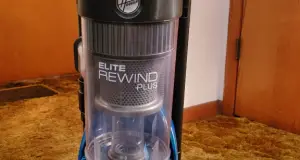Have you Ever Tried to Vacuum Seal Soup?
There will be no canned soup. Ever. That’s what your dependable vacuum sealer can help you with.
Homemade soup does not keep indefinitely. It may have a longer shelf life than fish fillets, but it can last about a week in the refrigerator, which is generally where you keep residual stews and soups. Freezing creates its own set of issues. Soups may quickly suffer from freezer burn if not stored in the proper container, resulting in a significant loss of flavor.
If you want to keep any soup or stew fresh for years, vacuum sealing is the easiest way to achieve it, but there is a method to it.
First Refrigerate it
You can’t vacuum seal a soup and put it in the freezer when it’s still liquid. For one thing, vacuum sealing liquids can be difficult. Second, liquids expand in the freezer, which might jeopardize the strong vacuum seal. Anyone who has ever frozen a can of Coke has encountered this issue
To avoid all of this, freeze the soup first and then vacuum seal it. Fill a container halfway with soup or stew. After that, place it in the freezer.
The secret is to freeze those soups or liquids before vacuum-sealing them. The secret is to place those soups or liquid things in a container and freeze them before vacuum sealing.
Vacuum seal the soup once it has been transferred.
Once the soup has frozen, remove it from the freezer and place it in a vacuum seal bag. You’ll be able to firmly vacuum seal that soup with a solid material without filling your drip tray. It’s the simplest method to freeze great stew for a rainy day, or simply some chopped fresh vegetables.
How long will your soup stay fresh in the zip lock bag? It will not only lock in the flavor for the season, but it will also keep it for two to three years. That’s equivalent to a can, and vacuum sealing is considerably easier than canning your own prepared dish.
Transfer From the Freezer to the Slow Cooker
When you’re in the mood for soup, remove your homemade soup from the freezer and place it in your Slow Cooker. Set it to low and you’ll have a delectable supper ready in no time. It’s an easy method to save time, money, and all that prep work.
Is it Possible to Vacuum-Seal Soup
Soup is one of those liquids that is frequently created in huge volumes and can contain solids, making it difficult to store and keep fresh for an extended period of time. The soup was traditionally stored by placing it in a container and placing it in the refrigerator. However, in this case, your soup would probably only survive a week at most. Freezing is another option, but it might cause freezer burn, which can change the flavor and texture of your soup when warmed.
Vacuum sealing permits liquids to stay fresh and flavorful for long periods of time, ensuring that you will always have freshly made soup on hand when you really need it.
Methods You can Use Instead
Homeowners, restaurants, and caterers have long struggled with the freezing of liquid food items. This is why firms have spent millions of dollars on R&D to create packaging that best holds liquid foods.
Bags for Liquid Blocks
Liquid block bags are uniquely designed to contain liquid while preventing it from escaping even when pressure is applied. These bags, however, are only excellent for one-time use and maybe a costly way to keep if needed on a regular basis, but they are fantastic if you need a fast and easy fix.
The Water Technique
If you don’t have a vacuum sealer at home but still want to save your prepared soup for later, the “Water Method” can be surprisingly successful. To use this approach, place the soup in a sealed bag and then immerse it in a container of room temperature water. Leave the top off, then compress the pouch to get rid of any remaining air. Allow no water to enter the zip lock before storing it in the freezer for later use.
Canister Vacuums
Plastic vacuum seal canisters or containers are the most frequent technique to store soup and other liquids. If you only need short-term storage, a plastic food container will suffice as long as you plan to consume the contents within a week at most.
Conclusion
Soups are a good and nutritious method to recharge, and they may also aid in the development of an appetite. Soups are especially comforting on days when you’re feeling under the weather and need warmth and comfort. However, opening a can of processed soup will not necessarily stimulate your taste senses, and creating a fresh batch may appear to be a long and exhausting operation that you simply do not have the energy for.




